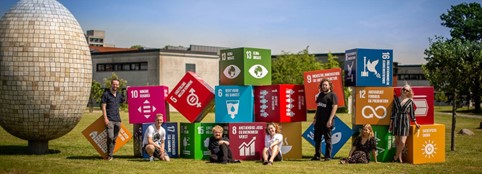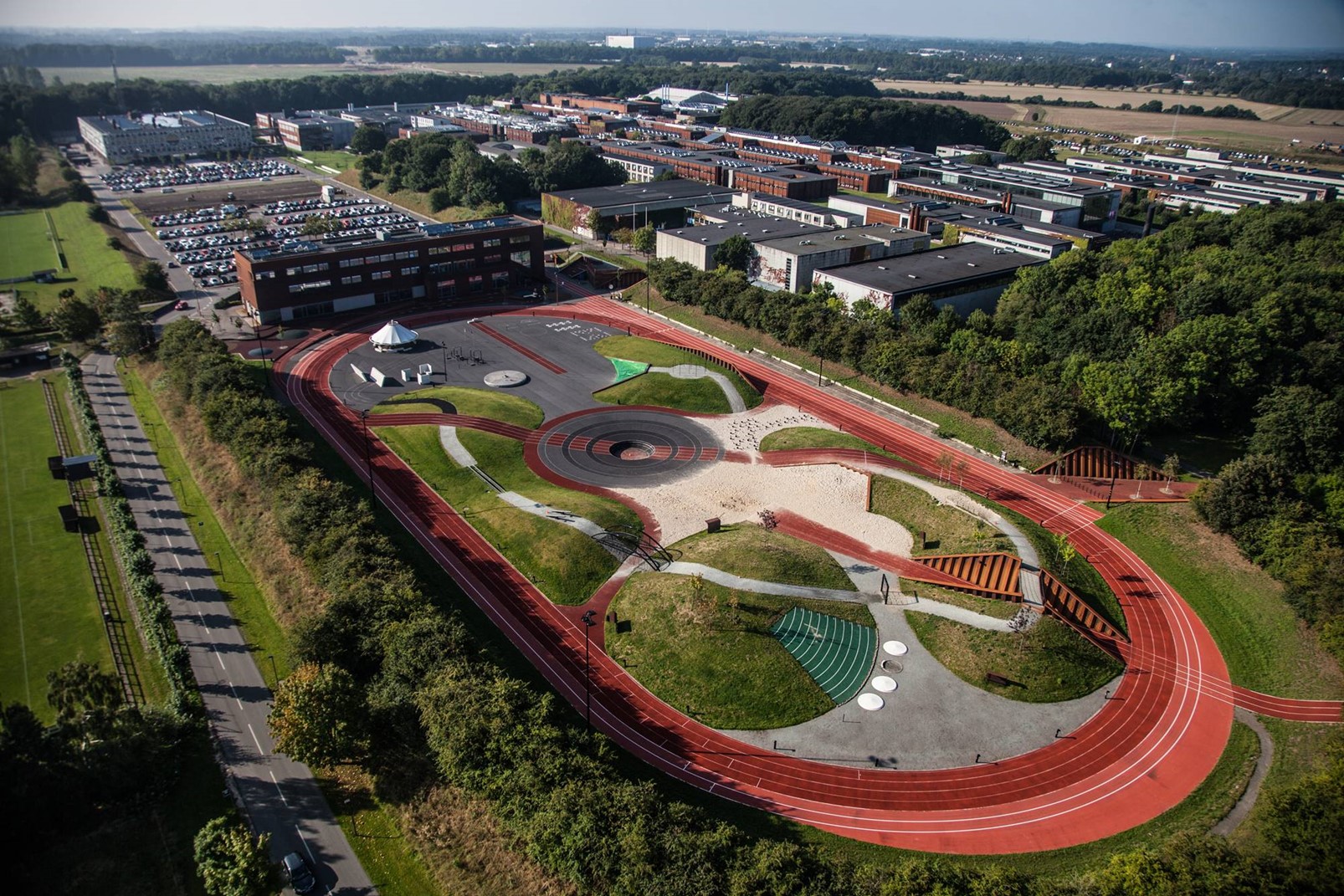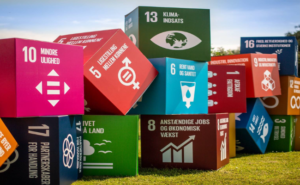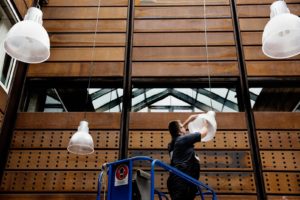University of Southern Denmark 2021 Sustainability Report released
Knowledge for a sustainable future
Universities have a critical role to play in providing answers to grand societal challenges. In our time, one of the greatest challenges facing the future of our planet is sustainable development. Universities generate new knowledge and innovations that provide solutions to the interconnected social, economic and environmental challenges captured in the SDGs. This report is a snapshot of what we did in 2021 to advance sustainability across the University of Southern Denmark.
Research and innovation
The report shows that researchers at SDU are occupied with sustainability and are engaged in a wide variety of sustainability-related research activities. The examples range from green aviation fuel to inequality in healthcare and sustainable markets. The report also shows that the activities are happening globally and locally in collaboration with other universities, companies and public institutions.
On average, between 2019 and 2020, 58% of research funding was used for research related to sustainability. This corresponds to almost DKK 400 million. According to Elsevier SDG classification queries in the database Scopus1, the total number of SDG-related publications by SDU researchers in any SDG in 2021 was 1,906. 1,309 of these were scholarly SDG-related publications (articles, conference papers and book chapters).
From 2011-2020, researchers from SDU published around 25,000 co-authored publications. 15% of these were with non-SDU researchers from the Global South. During that period, there was a yearly increase in the number of co-authored publications and the proportion published in cooperation with non-SDU researchers from the Global South. In 2020, this share was 20%.
Finding effective solutions to the climate challenges facing society requires interdisciplinary research. SDU holds a strong position within this area, and we want to bring this even more into play. In 2022, we will launch SDU Climate Cluster (SCC). SCC will unite research environments across disciplines and faculties on a joint, mission-driven research thematic: “Climate”. With a broad interdisciplinary approach to climate research, SCC will set a framework that provides optimal conditions for cutting-edge, excellent and interdisciplinary research, education and communication within the climate area and the sustainable green transition of society.
Teaching and learning
Of the 17 SDGs, SDG 4 is Quality Education, which discusses the need to ensure inclusive and equitable quality education for all without discrimination. SDG 4 has 10 targets concerning different aspects of education. One of the targets focuses on ensuring that all learners acquire the knowledge and skills needed to promote sustainable development. In the autumn semester of 2020, as a part of a pilot project around 1,000 students across SDU completed the introductory course on sustainability. In 2021, the course became part of all programmes at SDU, and all new students on the bachelor programmes must now complete the course.
The report sheds light on the range of subjects and courses as well as co- and extracurricular offers relevant to sustainability. 995 courses and subjects offered were related to sustainability. This corresponds to 23% of all courses and subjects. 89 bachelor, master’s and engineering programmes are related to the green transition. This means that the programmes contain topics such as energy production and efficiency, agriculture and food production, transport, environment and circular economy, nature and biodiversity or sustainable behaviour and societal consequences.
In 2022, we will continue to develop and make visible our curricular, extra- and co-curricular offers to students who want to improve their skills in relation to sustainability. Another area of focus will be rethinking our guidance to students. We are now standing on the threshold of a new transition in the labour market: the sustainable transition. At the same time, we are experiencing that more students want to contribute to a sustainable future through participation in communities. The task here will be to support students and see to it that their individual career trajectory is connected to the societal and global trajectory, and that “I too” through my education, work and career can contribute to the actual creation of a sustainable future.
Operations
SDU is also committed to embedding sustainability in all our campus operations to conserve resources, reduce pollution, reduce carbon emissions and support positive behaviour on sustainable issues. We also want to ensure that SDU is a diverse employer with innovative and creative research environments and an inclusive and healthy working environment.
The also shed light on selected areas in our efforts to make our campuses more sustainable and make SDU an inclusive and diverse workplace characterised by a healthy working environment. As can be seen about one in five employees experience challenges in relation to their work-life balance. When a similar survey was conducted three years ago in 2018, this share was also 21%.
In relation to gender equality, it should be noted that we are seeing a five per cent increase in the proportion of female senior academic staff compared to previous years. The female proportion of senior academics is now 28%. In comparison, the female proportion among assistant professors and associate professors is about 45%. 37% of all managers in SDU are women. If we zoom in on the two senior management levels (executive board members, department heads and directors), the proportion of women is 33%.
With the Board’s adoption of a climate plan for SDU in December 2021, the focus in 2022 and onwards will be on intensifying the work of reducing greenhouse gas emissions from the University. The goals here will be to reduce emissions from buildings, operations and transport as well as strengthen the circular resource economy at SDU. As part of the plan, SDU has set a goal of reducing greenhouse gas emissions by 57% in 2030 compared to 2018.



